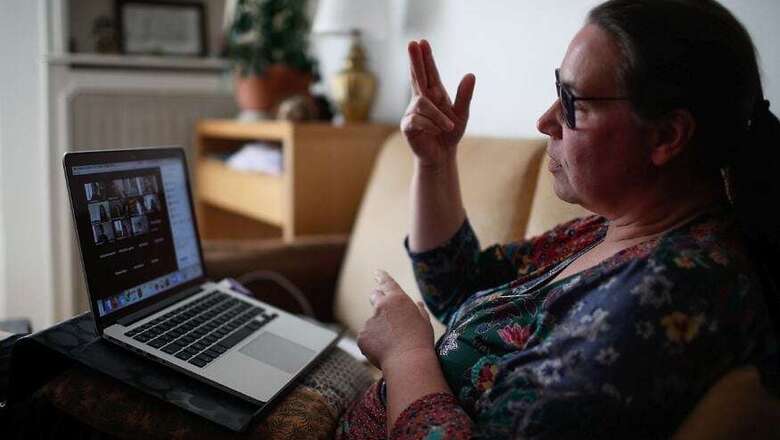
views
Zoom shot to popularity over the past few months by virtue of the coronavirus pandemic. With more and more people working from home, Zoom's free to use video conferencing service, coupled with a feature set that allowed adding of up to 50 participants as well as sharing screens and recording meetings, meant that it was a perfect fit for practically any industry. However, the past couple of weeks have underlined a startlingly high number of security and privacy issues with the app, and despite its founder Eric Yuan's apologies and assurances, Zoom seems very difficult to be trusted. It is this that is now leading to alternate video calling applications, most of which have been around for longer and are better known in general, seeing more downloads. If you value your online security, then here's a list of apps that you must try out.
Microsoft Teams
Possibly the most robust video calling service out there today, Microsoft Teams comes with features such as 256-bit AES encryption, two-factor authentication (2FA) and a general more secure VoIP environment. Teams also comes with an excellent suite of features such as cross-language live translation and transcription, integration with other Microsoft Office services, and more. For those who value their internet safety and privacy, Microsoft Teams is the best service to trust.
Microsoft Skype Meet Now
Yet another service hosted by Microsoft, Skype's Meet Now service was introduced recently as a free to use app that does not even require you to sign up, or install the app (it has a free to access web app). Users can generate a Meet Now video conferencing link, which can only be shared personally. Even meeting hosts do not require to sign up, and the service can be hosted by anyone who wishes to use Skype's interface and security advantages, without needing to go through added registration layers.
Google Hangouts Meet
While Hangouts Meet does not offer end to end encryption, it is used as an enterprise grade video conferencing tool across many companies. Hangouts Meet is typically offered as part of Google's G Suite services for companies, so despite the lack of enterprise grade encryption, Hangouts is still far safer in terms of data protection and privacy. The scale of Hangouts also means that video calls can be made to up to 250 participants at one go, or streamed live to up to 1,00,000 participants.
Signal
The best of the bunch in terms of security, Signal also offers video conferencing, but with the industry's best encryption standards. This also lets users share files with confidence, and even confidential work documents can be shared through the service without any fear of breaches. Signal also does not have issues such as sharing data with remote servers and third party organisations, which is critical in order to establish sound privacy practices. Alongside Microsoft Teams, Signal is the safest video calling service out there.




















Comments
0 comment